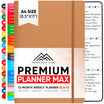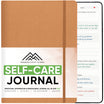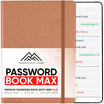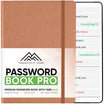In today's fast-paced world, staying focused and productive can be a challenge. We often find ourselves overwhelmed with endless to-do lists and constant distractions. However, there is a powerful tool that can revolutionize your productivity and help you reach new heights: journaling. In this article, we will explore the incredible benefits of journaling and provide practical tips on how to incorporate it into your daily routine. Get ready to boost your productivity with a journal and unlock your full potential.
Boost Your Productivity with a Journal: What You Need to Know
1. Understanding the Basics: What is Journaling?
Journaling is the practice of writing down your thoughts, ideas, and experiences in a structured manner. It goes beyond the simple act of keeping a diary; it involves deliberate reflection and self-analysis. By putting pen to paper, you engage both your mind and body, enhancing your ability to process information and make connections.
2. The Power of Reflection: Gain Clarity and Focus
Journaling as a Reflective Tool
Journaling acts as a mirror to your thoughts, allowing you to gain clarity and focus. When you write down your goals, aspirations, and challenges, you are forced to confront them head-on. This process enables you to identify patterns, make connections, and uncover hidden insights that might otherwise go unnoticed. By reflecting on your experiences, you can make more informed decisions and prioritize your tasks effectively.
3. Cultivating Self-Discipline: Consistency is Key
Establishing a Journaling Routine
Consistency is crucial when it comes to journaling. Set aside a specific time each day to write in your journal, whether it's in the morning to set your intentions for the day or in the evening to reflect on your accomplishments. By establishing a routine, you develop self-discipline and make journaling a habit. Over time, this consistency will strengthen your focus and productivity.
4. Setting Goals and Tracking Progress
Journaling for Goal Achievement
One of the key benefits of journaling is its ability to help you set clear goals and track your progress. By writing down your objectives, you give them a tangible form, making them more concrete and attainable. Regularly reviewing your goals and noting your progress keeps you accountable and motivated. Celebrate your achievements, no matter how small, and use setbacks as opportunities for growth.
5. Streamlining Your Thoughts: Brainstorming and Problem Solving
Using Journaling for Idea Generation
Journaling is an excellent tool for brainstorming and problem-solving. When faced with a complex task or a challenging problem, writing down your thoughts and ideas can help you organize your thinking. Use your journal as a space to explore different possibilities, weigh pros and cons, and come up with innovative solutions. The act of physically writing can trigger creative thinking and lead to breakthroughs.
6. Managing Stress and Enhancing Well-being
Journaling for Stress Relief
Journaling is not only a productivity tool but also a powerful stress management technique. When you pour your thoughts and emotions onto the page, you release pent-up stress and anxiety. Expressing your feelings through writing provides a sense of relief and helps you gain perspective. Additionally, journaling can enhance your overall well-being by promoting self-care and self-reflection.
Frequently Asked Questions
FAQ 1: Can journaling boost my productivity?
Yes, journaling can indeed boost your productivity. By incorporating journaling into your daily routine, you can experience a range of benefits that directly impact your productivity levels. Here are some frequently asked questions about how journaling can enhance your productivity:
FAQ 1: Can journaling really improve my productivity?
Absolutely! Journaling provides you with a structured way to plan your tasks, reflect on your progress, and identify areas for improvement. It helps you prioritize your goals, stay focused, and track your accomplishments. By keeping a journal, you develop a clear vision of what needs to be done and gain a sense of control over your tasks, ultimately enhancing your productivity.
FAQ 2: How should I start journaling for productivity?
To start journaling for productivity, find a quiet and comfortable space where you can dedicate a few minutes each day to write. Begin by setting specific goals and intentions for the day or week. Write down your tasks, deadlines, and any thoughts or ideas related to your work. Reflect on your progress regularly and make adjustments to your plan as needed. Consistency is key, so make it a habit to journal consistently and witness the positive impact it has on your productivity.
FAQ 3: Can journaling help with time management?
Absolutely! Journaling is an excellent tool for time management. By writing down your tasks and deadlines, you create a visual representation of your responsibilities. This helps you allocate your time effectively and prioritize tasks based on their importance and urgency. Journaling also allows you to evaluate how you spend your time, identify time-wasting activities, and make necessary adjustments to optimize your productivity.
FAQ 4: Can journaling help with overcoming procrastination?
Yes, journaling can be a powerful tool for overcoming procrastination. When you journal, you can reflect on the reasons behind your procrastination habits and explore strategies to overcome them. By identifying the root causes of your procrastination, you can develop actionable steps to stay motivated and focused. Journaling also provides an opportunity to celebrate small victories and track your progress, which can boost your motivation and help you break free from the cycle of procrastination.
FAQ 5: Can journaling improve my problem-solving skills?
Certainly! Journaling enhances your problem-solving skills by allowing you to brainstorm ideas, evaluate different perspectives, and analyze potential solutions. When faced with a problem, write it down in your journal and explore various approaches to solving it. Use your journal as a space to ask yourself questions, think creatively, and generate new ideas. The act of writing stimulates your brain and encourages deeper thinking, enabling you to come up with innovative solutions.
FAQ 6: How can journaling help reduce stress and boost well-being?
Journaling provides an outlet for stress and emotions, offering a therapeutic and cathartic experience. When you write about your feelings, concerns, and challenges, you release the weight of stress and gain a sense of relief. Journaling also promotes self-reflection and self-care, as it encourages you to check in with yourself regularly. By expressing your thoughts and emotions in a safe and non-judgmental space, you can enhance your overall well-being and mental clarity, leading to improved productivity.
Conclusion: Unleash Your Full Potential with Journaling
Incorporating journaling into your daily routine can be a game-changer when it comes to boosting your productivity. By engaging in reflective practices, setting goals, and tracking your progress, you can unlock your full potential and achieve greater success in both your personal and professional life. Take the first step today and start journaling to witness the transformative power it can have on your productivity, well-being, and overall satisfaction.























Leave a comment
All comments are moderated before being published.
This site is protected by hCaptcha and the hCaptcha Privacy Policy and Terms of Service apply.